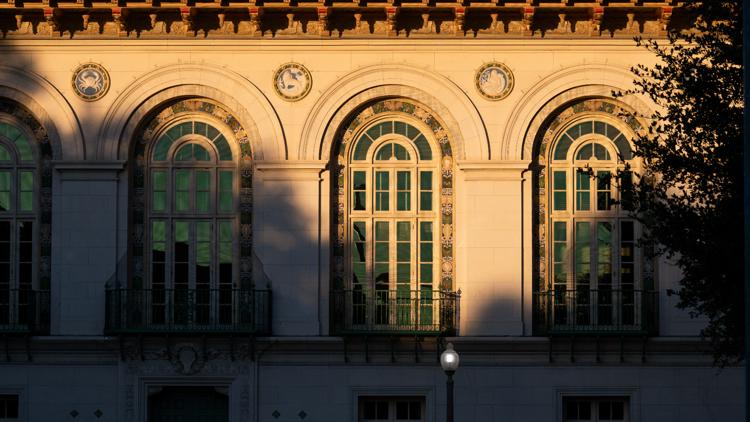AUSTIN, Texas — More than 260 international university students in Texas have had their visas revoked by the federal government. The Department of Homeland Security (DHS) has been cracking down on international students studying in the U.S.
, stripping hundreds of their visas. Leaders with the University of Texas system tell KVUE that as of last Friday, 176 students at its institutions have been affected. Texas A&M system leaders told KVUE’s media partners at the Austin American-Statesman that's affected 38 of their students.

Earlier this month, KVUE asked UT if it could provide any details about whether international students have had their legal status change and/or have been removed from the Student and Exchange Visitor Information System, or SEVIS, federal database. A visa revocation can prevent re-entry into the U.S.
, while removal from the SEVIS means an immediate end to an individual’s status. A UT Austin spokesperson confirmed that, "The University can confirm that the visa status of multiple international students has unexpectedly changed in recent days." Meanwhile, Texas State said as of April 10, two of its international students had been notified of a change to their immigration or SEVIS status.
The university said it is assisting the affected students by connecting them with appropriate resources. "TXST is committed to supporting our international students while complying with all state and federal laws," the university said. According to KVUE's sister station WFAA , students affected across the UT system include 27 at the University of Texas at Arlington and 19 at the University of Texas at Dallas.
Ten students at the University of Texas at El Paso and nine students at the University of Texas Rio Grande Valley were also affected, The Texas Tribune reported. According to The Texas Tribune , a University of Houston professor from Korea who was teaching upper-level math had his visa terminated. Hyeongseon “Sammy” Jeon was reportedly working under a visa that allows graduates to work in their field of study for up to three years.
The University of Houston’s Students for Justice in Palestine group estimated 12 students were also impacted at the university. At least four students from Texas Woman’s University and 27 from the University of North Texas have had their visas revoked, according to WFAA. Three students at Texas Tech University had their legal status changed as well.
The Trump administration has said it will deport international students who were involved in pro-Palestine protests, but some students have had their visas voided for other unknown reasons. In a statement on Wednesday, April 9 , the DHS said it will screen international students’ social media for “antisemitic” content, citing two executive orders from President Donald Trump. Several Texas universities were sites of pro-Palestine protests, including at UT Austin last April .
How do student visas work? According to the Associated Press , students from other countries must meet a series of requirements to obtain a student visa, usually an F-1. Once they gain admission to a U.S.
school, students go through an application and interview process at a U.S. embassy or consulate abroad.
Students on an F-1 visa must show they have enough substantial support to study in the U.S. They must also remain in good standing with their academics and are generally limited in their ability to work off-campus during their academic program.
The State Department manages entry visas, and once an international student is in the U.S., their legal status is overseen by the Student and Exchange Visitor Program under the DHS.
What's happening right now? According to the AP, leaders at many U.S. schools learned the legal status of some international students had been canceled when they checked a database run by the DHS.
In the past, college officials say visas were typically revoked after schools updated the government when students fell out of status. Previously, a lack of a valid visa only limited a student's ability to leave the U.S.
and return – something they could reapply for with the State Department. But if a student has lost residency status, the AP reports that they must leave the country immediately or risk detention by Immigration and Customs Enforcement (ICE). Higher education leaders worry that the lack of clarity of what is leading to the visa revocations could create a sense of fear among students.
“The very public actions that are being taken by ICE and the Department of Homeland Security around some of these students, where they are removing these students from their homes or from their streets, that’s not usually done unless there is a security issue when a student visa is revoked," said Sarah Spreitzer, the vice president of government relations at the American Council on Education. "The threat of this very quick removal is something that’s new.".
Politics

More than 260 Texas international students have visas revoked

Leaders with the University of Texas system tell KVUE that as of last Friday, 176 students at its institutions have been affected.















